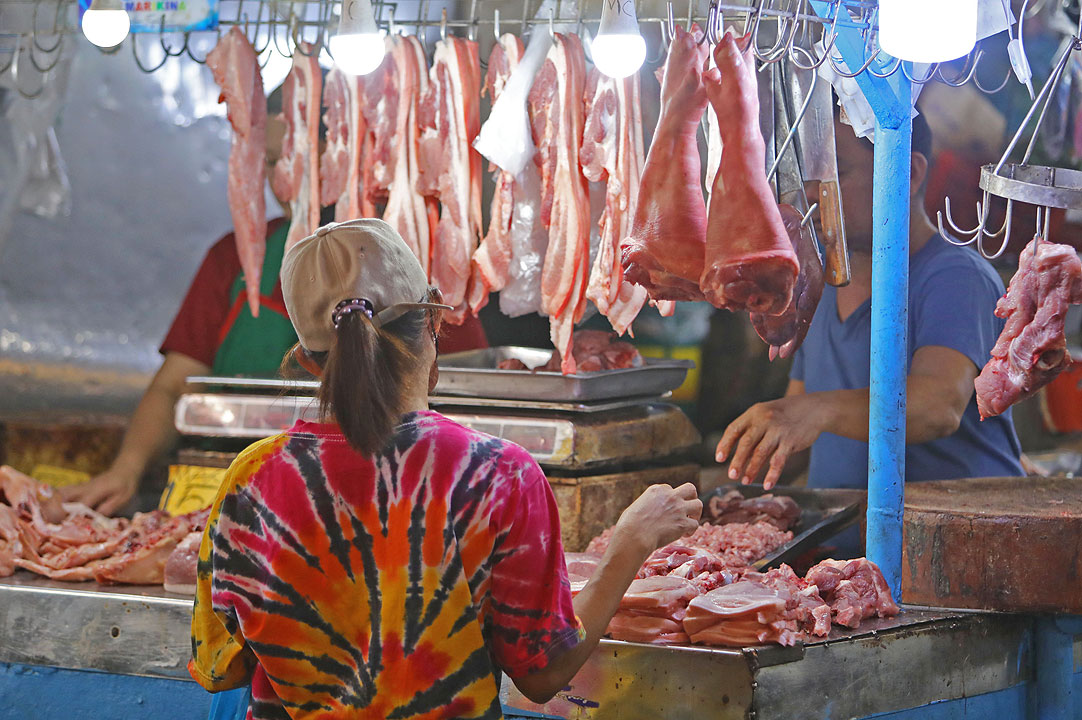MITA urges gov’t to further lower pork tariffs

LOCAL MEAT IMPORTERS are urging the government to further lower the tariffs on imported pork and maintain these for the next five years, in order to ensure adequate supply amid a possible pork shortage in the coming months.
This as the executive order (EO) on the current tariff rates for imported pork is set to expire by yearend.
In a May 22 letter, the Meat Importers and Traders Association (MITA) asked National Economic and Development Authority (NEDA) Secretary Arsenio M. Baliscan to clarify if the current tariff rates will be “reduced, maintained or revert to the higher rates.”
The current tariff rate is 15% for in-quota imports, and 25% for out-quota, as per the EOs issued by then-President Rodrigo R. Duterte and President Ferdinand R. Marcos, Jr.
The latest EO, which was signed by Mr. Marcos, expires by end-2023, which means pork meat would revert to the original tariff rates of 30% in-quota and 40% out-quota.
“The EOs were issued to address the high price of pork that resulted from the hog shortage caused by African Swine Fever (ASF). Needless to say, reversion to a higher duty rate will further raise the cost of imported pork meat and discourage imports,” MITA said in the letter signed by its president Sherwin Choi and president emeritus Jesus C. Cham.
The group also reiterated its proposal that all meat and edible offal imports be imposed a 5% tariff rate across the board. It also pushed for another five years of lower duties for pork meat imports to ensure the industry recovers from ASF, which first appeared in 2019.
“We are now in the fourth year, and the (Department of Agriculture) has just forecast a pork shortage for the coming months. Clearly the hog recovery is not going well. It is timely to now maintain low tariff for the next five years,” MITA said.
Amid the rise in global pork prices, the group said the Philippines should follow its neighbors in cutting tariffs and diversifying sources of pork imports.
“As pork meat is a crucial part of the Filipino diet, it is necessary to maintain its availability and affordability. Unfortunately, the uncertainty on whether the tariffs would revert to the previous rates hangs over our heads,” it added.
However, Jayson H. Cainglet, executive director of Samahang Industriya ng Agrikultura, said that reverting back to previous tariff rates for pork meat may actually help the local hog industry recover.
“Tariffs protect the local industry because of the low cost of production as a source of imports as they are heavily subsidized by their respective governments,” he said in a Viber message. “In the absence of comprehensive government support, tariffs are the industry’s last refuge.”
Mr. Cainglet also noted that the reduction in tariffs did not result in lower retail prices.
Rizal Commercial Banking Corp. Chief Economist Michael L. Ricafort said in a Viber message that lowering tariffs on pork meat would be “part of the non-monetary measures to help bring down prices.”
“This would help increase local supply and lower prices of pork/meat products, in view of reduced local supplies due to the ASF that hit some provinces/regions in Southern Philippines in recent months,” he said.
Mr. Ricafort warned that lower tariff rates may hurt the local industry amid increased competition from imports. — Sheldeen Joy Talavera
